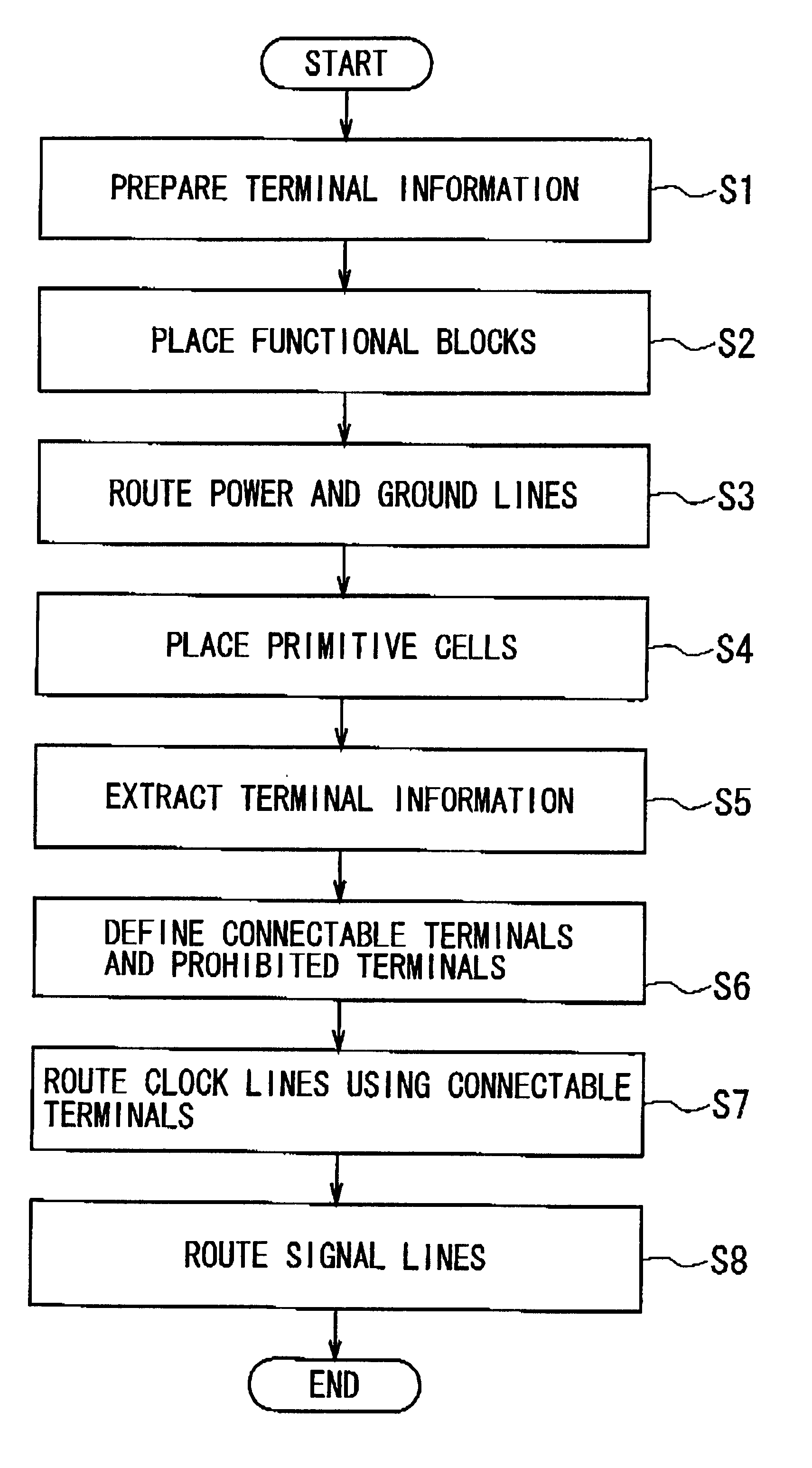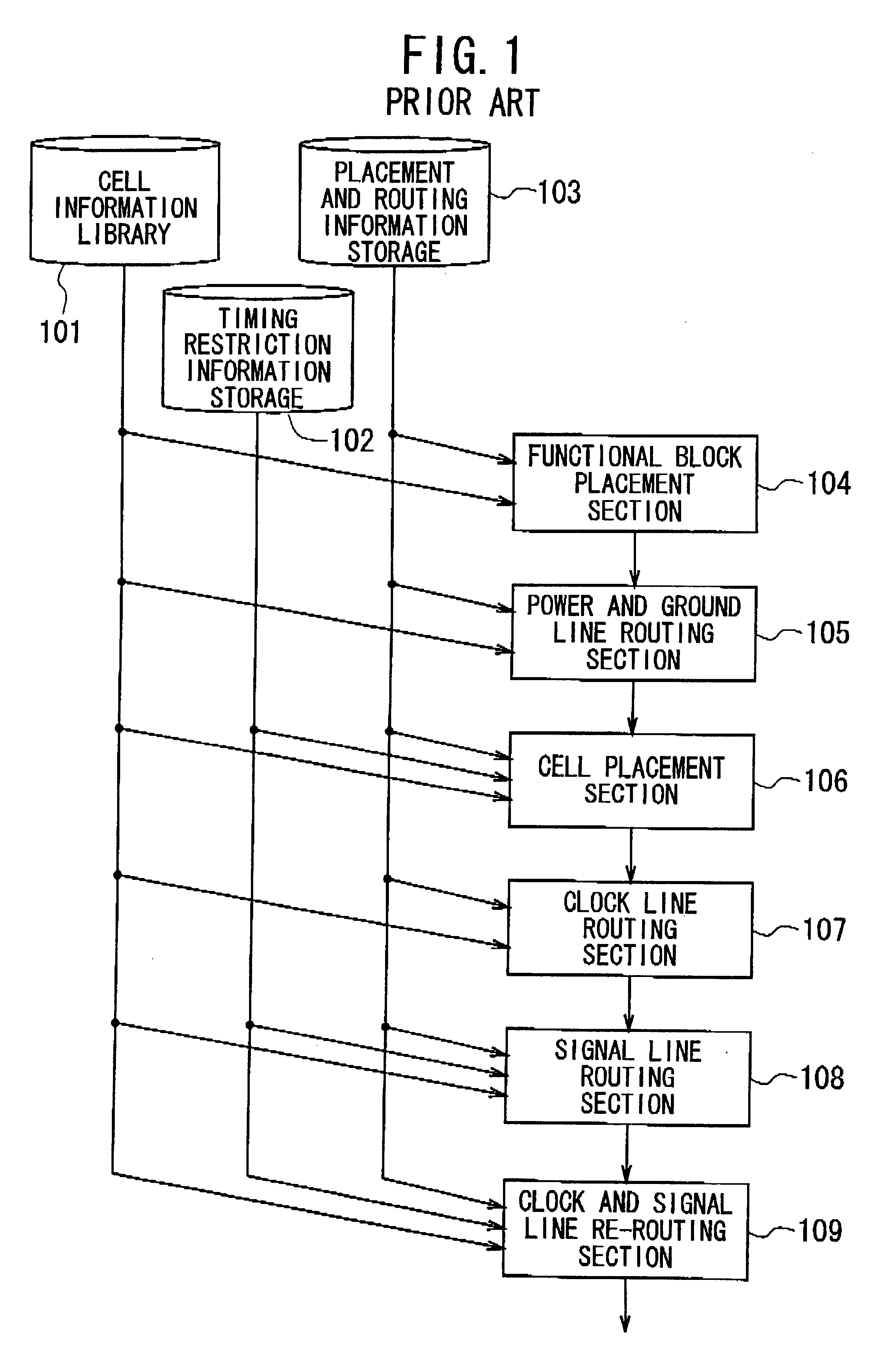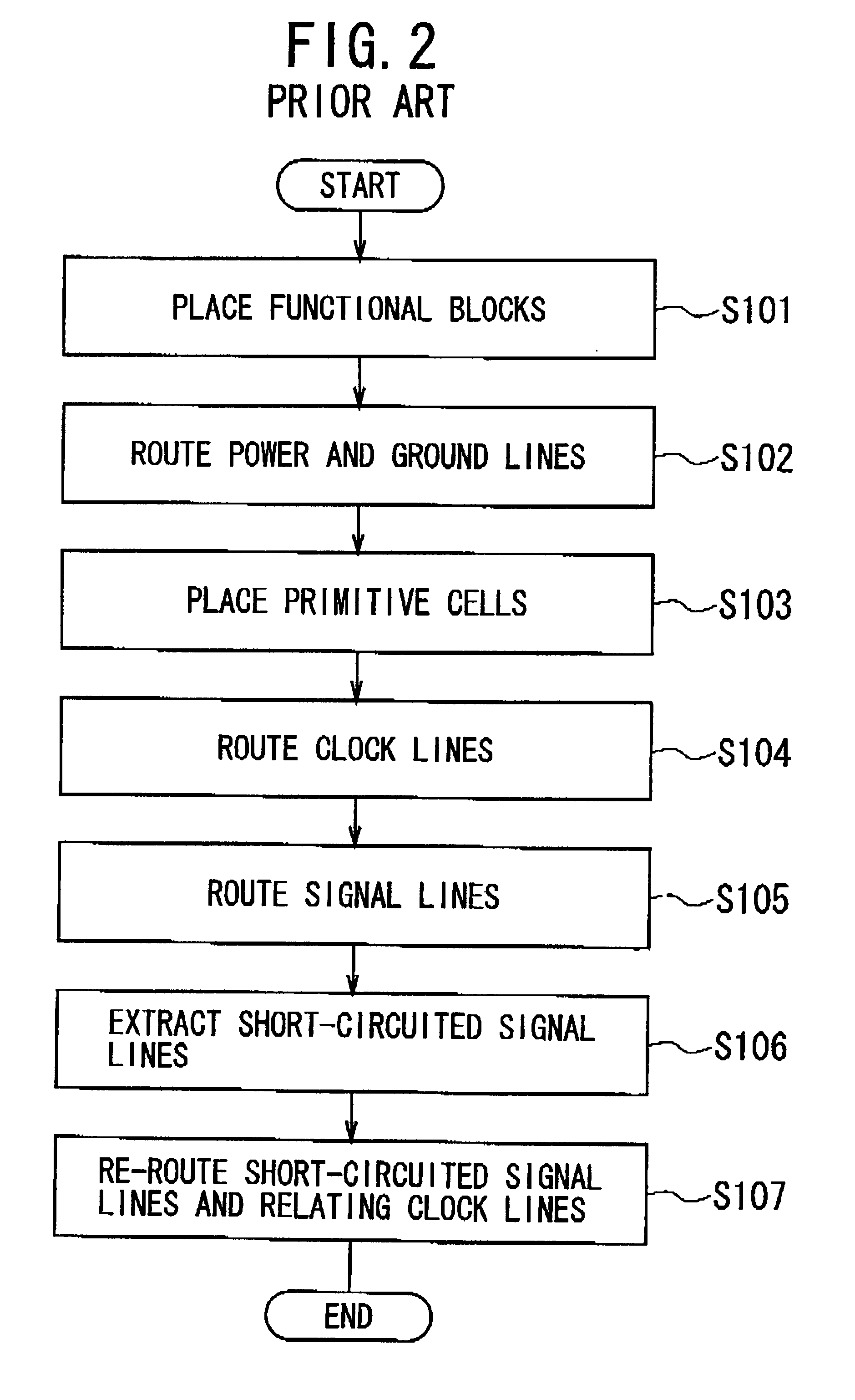Method of designing layout for integrated circuit
a layout and integrated circuit technology, applied in the direction of cad circuit design, program control, instruments, etc., can solve the problems of short circuit of signal lines, deterioration of relative skew of clock signals, and unconnected terminals,
- Summary
- Abstract
- Description
- Claims
- Application Information
AI Technical Summary
Problems solved by technology
Method used
Image
Examples
second embodiment
FIG. 12 shows the layout section of a CAD tool used for conducting a method of designing the layout for an IC according to the invention.
The system in FIG. 12 comprises the same configuration as the system shown in FIG. 7 used in the method according to the first embodiment, except that a prohibited terminal information library 11 is provided instead of the cell and terminal information library 10. Therefore, the detailed description about the same configuration is omitted here for the sake of simplification of description by attaching the same reference numerals as used in the first embodiment to the same elements in FIG. 12.
In the layout section of FIG. 12, the library 11 stores the information about the terminals that are prohibited from being overlapped by clock lines located in each wiring layer as the "prohibited terminal information". The "prohibited terminal information" in the library 11 is read out and sent to the clock line routing section 7 as necessary.
first embodiment
Unlike the layout section of FIG. 7 used in the first embodiment, the cell information and the wiring layer information is sent to the clock line routing section 7 from the cell information library 1.
FIG. 13 shows the process steps of the method according to the second embodiment, in which the layout system shown in FIG. 12 is used.
The method of the second embodiment corresponds to one obtained by replacing the steps S1, S5, and S6 in the first embodiment with the steps S11, S15, and S16, respectively. Therefore, the explanation about the same steps as shown in the first embodiment is omitted here.
In the method according to the second embodiment, first, the "prohibited terminal information" is prepared and stored in the library 11 in the step S11. For example, as shown in FIG. 14, a primitive cell 23 has prohibited terminals 13b, 14b, and 15b. In this case, the "prohibited terminal information" contains the definition or identification code that defines the terminals 13b, 14b, and 1...
PUM
 Login to View More
Login to View More Abstract
Description
Claims
Application Information
 Login to View More
Login to View More - R&D
- Intellectual Property
- Life Sciences
- Materials
- Tech Scout
- Unparalleled Data Quality
- Higher Quality Content
- 60% Fewer Hallucinations
Browse by: Latest US Patents, China's latest patents, Technical Efficacy Thesaurus, Application Domain, Technology Topic, Popular Technical Reports.
© 2025 PatSnap. All rights reserved.Legal|Privacy policy|Modern Slavery Act Transparency Statement|Sitemap|About US| Contact US: help@patsnap.com



